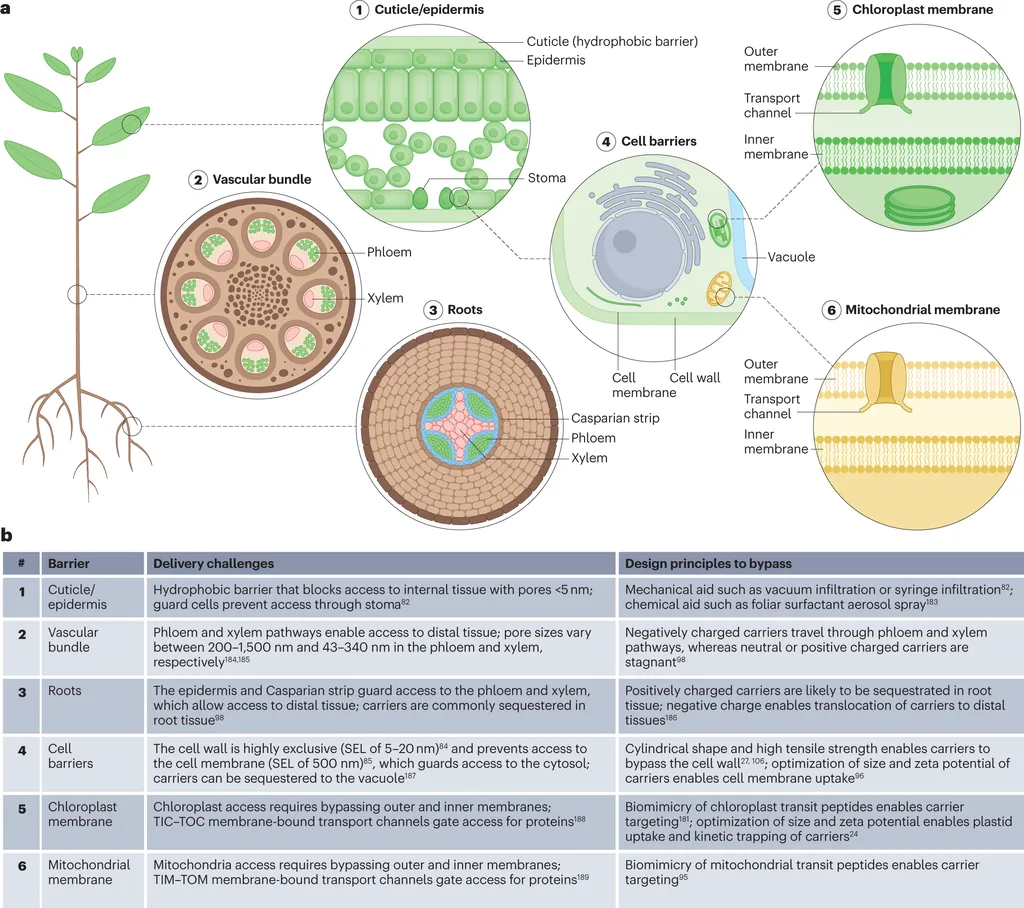In the quest for sustainable agriculture, scientists are turning to the tiniest of tools: nanomaterials. A recent review published in *Plant Nano Biology* explores how these minuscule particles could revolutionize plant genetic engineering, offering a more efficient, targeted, and potentially more sustainable approach to crop improvement.
Traditional genetic engineering methods have long faced challenges such as low efficiency, high costs, and the risk of insertional mutagenesis. Enter nanomaterials, which provide a novel solution to these hurdles. According to the review led by Gabriel Gonçalves Leal from the Plant Biotechnology Lab at the Federal University of ABC (UFABC), these nanocarriers can deliver genetic material like DNA, RNA interference (RNAi), and CRISPR-based genome editing molecules directly into plant cells.
The review highlights several types of nanomaterials that have shown promise in plant biotechnology, including metallic nanoparticles (like gold and silver), carbon nanomaterials, polymeric nanoparticles, and lipid-based systems. These nanoparticles can traverse the plant cell wall and membrane barriers without causing significant cytotoxicity or genomic instability, making them ideal for delivering genetic material.
One of the most exciting aspects of this research is its potential to facilitate gene silencing and high-precision genome editing. “Nanoparticles-based systems have enabled efficient gene silencing via plasmid DNA, siRNA, and dsRNA, as well as high-precision genome editing through direct ribonucleoproteins (RNPs) delivery, facilitating transgene-free mutants,” Leal explains. This could lead to the development of crops with desirable traits without the need for traditional genetic modification methods.
The implications for the agriculture sector are substantial. Nanoparticle-mediated gene delivery could enhance crop resilience, increase yields, and reduce reliance on chemical inputs. This aligns with the growing demand for sustainable agricultural practices, offering a potential solution to global food security and climate change adaptation.
However, challenges remain. Issues such as nanoparticle phytotoxicity, genotypic variability in delivery efficiency, off-target effects, and the environmental fate of nanoparticles need to be addressed. Future research should focus on refining nanomaterial properties to enhance biocompatibility, ensure precise gene targeting, and minimize off-target effects.
The integration of nanotechnology with precision agriculture could pave the way for more sustainable and efficient crop improvement strategies. As Leal and his colleagues continue to explore the potential of nanomaterials in plant biotechnology, the agriculture sector stands to benefit from these innovative approaches, potentially transforming the way we grow and cultivate crops in the future.

